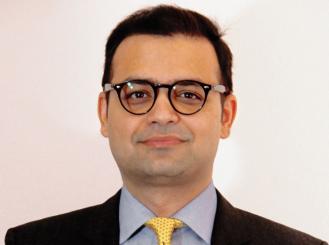Oct 24, 2016
By Uqba Khan, MD
St. John Hospital
Getting into a competitive fellowship like hematology/oncology is a great achievement by itself, but shining through the fellowship is another ordeal. Hematology/oncology fellowship is quite different from other disciplines of medicine due to the complexity of patient care and ever-evolving therapeutic options. Most internal medicine residency programs do not provide enough exposure to hematology/oncology, either, which puts an extra stress and burden on incoming fellows to adjust in this field. The transition from residency into fellowship is especially difficult for those fellows who did their residency in a different program.
When I started my fellowship, I thought I had landed on an alien world, but things started settling down after few months. Here are a few of the lessons I learned along the way.
1. First things first—take your boards seriously.
Fellowship is all about setting your goals, planning ahead of time, finding the right mentors, and working hard to achieve success as you’ve defined it. Passing your internal medicine boards is the first goal to achieve, which means you have to start studying weeks to months before starting the fellowship. It is essential to give serious importance to the boards, as it would really hamper your progress in fellowship if you flunk it. Once you clear this roadblock, you can focus clearly on your fellowship.
2. Think of your patients as your teachers.
The majority of hem/onc fellowship programs are frontloaded with clinical rotations for at least 15 to 18 months. During your clinical months, it is crucial to gain as much insight and exposure to the clinical aspects of the fellowship as possible. It is imperative that you prepare your clinical cases ahead of time, especially for continuity and specialty clinics. For example, if you have a new patient scheduled for your clinic, plan to read about the case a day or two before so that
you have ample time to understand the patient. Being well prepared makes you productive during the clinic time, and it leaves a good impression on your patients as well as your attendings. Go through current guidelines and any recent breakthrough articles so that you can make your clinical decisions through evidence-based medicine. And don’t forget to discuss potential clinical trials with your patients.
3. Use your resources wisely.
There is no shortage of resources in terms of medical literature, guidelines, and books—in fact, the options are overwhelming. Utilizing these resources productively is a skill that you can develop with experience. Some of the commonly used resources are National Comprehensive Cancer Network guidelines, ASCO University®, ASCO-SEP® (a new edition was published in May 2016), ASH-SAP, reputed journals, board review series, and ASH Academy. And, of course, participating in multidisciplinary conferences like tumor boards will further enhance your knowledge and understanding of the management of various malignancies. You will never be let down if you make a habit of utilizing these resources before every new case you see in your clinic or inpatient setting.
4. Make research a priority.
Research is an integral part of hematology/oncology fellowship. It’s important to find the area of your interest within the field as early as possible and start working on research projects. Mentorship plays a vital role in doing meaningful and successful research. Networking is also crucial in shaping your research goals, as it will further broaden the horizon for new opportunities and collaborations. One way to network successfully is to become a member of local, national, and international organizations like ASCO, the American Society of Hematology, the American Association for Cancer Research, the American Society for Blood and Marrow Transplantation, etc. Attending major conferences, such as the ASCO Annual Meeting, will provide an opportunity to meet leaders in the field and share your ideas with them. Everyone you meet is a potential research collaborator.
5. Practice self-care.
The first year of fellowship can be very stressful and taxing at times, and can lead to burnout. It is important to enjoy your life outside the world of fellowship in order to stay motivated and charged throughout your training career. Having regular one-on-one meetings with your program director can help you sort through issues due to fatigue and exhaustion. One simple way of reducing stress is to finish a given task right away, rather than putting it off until the last minute.
Last but not least, don’t forget to spend time with your loved ones and family members, as they are your pillars of support for a successful career.


